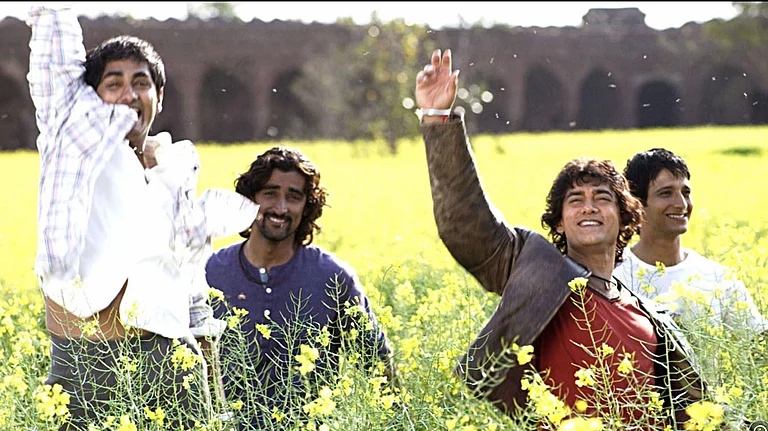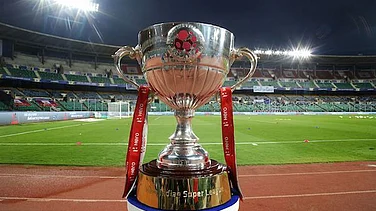Human nature is such that the more trivial a pursuit, the greater the importance we sometimes give it. Even in the year 2022, if two complete strangers start fighting, people are liable to drop what they are doing – job interview, child’s school pick-up, flight to Mars - and stare. Out comes our master, the smartphone, and we record the spectacle of stupidity and aggression unfolding before us.
This is why, nearly four years ago, in Kakinada, Andhra Pradesh, 1,846 people were arrested for organising cockfights, that too as Sankranti celebrations. Among the things the police confiscated from them were 527 roosters, 615 knives and a kitty of Rs 8.3 lakh.
This is why in Muzaffarnagar last year, a court convicted a man for murdering a rival in kabootarbaazi, or pigeon racing. Last checked, it was not an Olympic sport.
So forget about good sense when it comes to popular mainstream sports as well, football being a prime example. Football is a drug due to which incensed Barcelona fans once threw a pig’s head at Luis Figo, as he went to the edge of the Camp Nou pitch to deliver a corner kick. In their eyes, the Portuguese star had committed blasphemy by leaving FC Barcelona for their rival, Real Madrid.
George Orwell meant well when he wrote in ‘The Sporting Spirit’, “There are quite enough real causes of trouble already, and we need not add to them by encouraging young men to kick each other on the shins amid the roars of infuriated spectators.” But it doesn’t always work that way. As Jose Antonio Cachaza, the La Liga India MD, reminds Outlook, to Orwell’s description of sport as “war minus the shooting”, the writer John Carlin responded, “Isn’t it great?”
An inflammable passion
Explaining why sport lights a fire among masses, Sunil Chhetri, the Indian football captain, tells Outlook, “I think it’s got to do with the inherent nature of human beings to associate with a group, stand up for it with pride, and somewhere along the way, make it about ‘us against them’. I think jingoism in sport is something that has been passed down from one generation to the next.”
The FC Bengaluru striker, and the world’s third highest active international goalscorer (84 goals for India) after Cristiano Ronaldo and Lionel Messi, is a rare Indian footballer who has earned stints at overseas clubs. Chhetri, 38, turned out for Sporting Clube de Portugal and Kansas City Wizards.
As someone who has played in arenas all over the world, Chhetri touched upon how he dealt with jingoism in the stands: “Rivalries are such an integral part of football, and it’s safe to say I’ve been part of more than just a few games where you can sense the hostility from the stands,” he says. “To be honest, it happens more at the club level, than for the country. Personally, I switch off to everything outside well ahead of the game. And even if I do happen to see or hear things from the stands, I don’t really let it affect me.”
There is a fine line between patriotism and jingoism. Everyone welcomes patriotism, or support for a team, whether it is a national side or a club. Jingoism, though, is unpleasant and dangerous. But the truth is that few fans know the difference. In fact, many go to games for the same reason that they go to a bar - to escape sense and restraint.
The hockey chapter
Not long ago, hockey stirred passions in India as much as cricket does today. After India’s exciting bronze medal campaign at the Tokyo Olympics, it is evident that hockey of a certain level and in certain competitions can still strike a chord among Indians.
But if there is passion from the public, there is also the pressure of expectations on players, especially before matches against Pakistan. This was especially true in earlier times. M.M Somaya, the 1980 Moscow Olympics hockey gold medallist and former India captain, has experienced this. “The political discontent between India and Pakistan has often reflected on the sports between the two countries. It’s much better now, but in the 80s, it was quite evident,” Somaya tells Outlook.
Somaya was a member of the team that suffered one of their worst moments against Pakistan, a 7-1 thrashing in the final of the 1982 Asian Games in New Delhi. It was an embarrassing anti-climax to a match so anticipated that some 25,000 people, including Prime Minister, Indira Gandhi, and actor, Amitabh Bachchan, were in attendance at the Major Dhyan Chand National Stadium. Much of the Asiad had been a success. India beating Pakistan in the final of the national sport would have been the perfect way of tying a bow on the event.

India even took the lead, but thereon it was agony. When Pakistan made it 4-1, Mrs Gandhi could take it no more and left, according to some reports of the match. When it was all over, the spectators were furious, and they made that known to the players. Somehow, though, things managed to cool down in a few hours. “The game left deep scars,” Somaya admits. “The public made their displeasure evident after the game. They lined up outside the ground, and we had to stay put in and around the dressing room for an hour or so, before we could go back to the Games Village. But after that, people were quite understanding. Also, within the next three weeks, we played the same Pakistan team in Australia and we defeated them. It assuaged feelings to some extent”.
Meanwhile, a provocative Bombay newspaper floated an absurd conspiracy theory. It insinuated that the Indian goalkeeper, Mir Ranjan Negi, had deliberately underperformed in exchange of money. This aspect of the aftermath of the match formed the premise of Chak De! India.
Forty years later, Somaya still betrays indignation at the allegations against his teammate. He is utterly dismissive of them. “That was loose talk by one paper, and not entertained by any other media. I don’t think any sensible person believed the allegations,” he says.

We seem to be growing up, finally
All said, Somaya feels that jingoism in sport in a larger sense has reduced, even taking the cacophony of social media into consideration. There might be a lot of jingoistic noise and posturing, but not actual misdeeds born out of jingoistic feelings. “I feel things have changed over the last 20-25 years,” he says. “This is because people are now exposed to sport across the globe, and more mature about winning and losing. For example, Brazil lost 7-1 to Germany in the 2014 World Cup, on their home turf. In an earlier time, the public reaction to such a defeat might have been severe. But that was not the case in 2014.”
La Liga, India’s Cachaza, also feels jingoism in football is no longer at the level it used to be. Delving deep into history, to a time when football was used by fascists to unleash their agenda, he says, “The 1934 World Cup in Italy was openly a propaganda event of Mussolini’s fascist regime. Most World Cups after have been expensive tools for host countries to introduce themselves to the world as modern nations capable of organising the biggest event on earth. But nothing comes close to that Italian affair.”
The event that does come close, says Cachaza, is the 1936 Berlin Olympics, which was used by Hitler to demonstrate racial and state supremacy. He also mentions the 100-hour war between Honduras and El Salvador in 1969, following, if not entirely triggered by, a World Cup qualifier between the two nations. It caused nearly 2000 casualties.
“Nothing like this could happen today,” Cachaza says. “Money rules the game today, not jingoism.”

When media fans the flames
A few weeks ago in Mumbai, former Australian pace star, Brett Lee, answered queries on jingoism in sport from Outlook. The media, he suggested, was a factor in driving up hype. And hype in India for the longest time has meant jingoistic news television, or sports channel promos such as Star Sports’ ‘Mauka Mauka’, which mocked the Pakistan cricket team’s World Cup record against India.
“I think at times there’s a huge media build-up [to games], and they flame the situation. If we didn’t speak about it so often, then there wouldn’t be a problem,” Lee says. “It’s not war, it’s a game of cricket. But it’s exciting. And I love it that there is no love lost on the field, and it should be that way. The passion should be there. But I also love the respect they (India and Pakistan players) show each other off the field.”
Chhetri says players understand the importance of rivalries, and of build-up as well. It is adivsable for them, however, to use the atmosphere judiciously. “I guess most professionals acknowledge it (the rivalry and hype), but don’t make it the focus of their task. It all depends how much of that aspect you use to spur yourself on the pitch,” Chhetri says. “At the end of the game, you don’t get six points (instead of the customary three) if you beat a bitter rival.”
(This appeared in the print edition as "Fever Pitch")


























